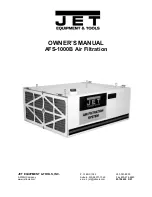
32
START-UP
Checking Refrigerant Charge
Charge for all systems should be checked against
the Charging Chart inside the access panel cover�
WARNING:
The top of the scroll
compressor shell is hot� Touching the compressor
top may result in serious personal injury�
IMPORTANT:
Use factory-approved
charging method as outlined on the next page to
ensure proper system charge�
NOTICE:
The optimum refrigerant charge
for any outdoor unit matched with an indoor
coil/air handler is affected by the application�
Therefore, charging data has been developed to
assist the field technician in optimizing the charge
for all mounting configurations (UF – Upflow, DF
– Downflow, LH – Left-Hand Discharge, and RH –
Right-Hand Discharge)� Refer to the charging chart
inside the access panel cover on the unit and
choose the appropriate column for the specific
application being installed or serviced�
Charging Units With R-410A
Refrigerant
CAUTION:
R-410A pressures are
approximately 60% higher (1�6 times) than R-22
pressures� Use appropriate care when using this
refrigerant� Failure to exercise care may result in
equipment damage or personal injury�
Charge for all systems should be checked against
the Charging Chart inside the access panel cover�
IMPORTANT:
Do not operate the
compressor without charge in the system�
Addition of R-410A will raise high-side pressures
(liquid and discharge)�
NOTICE:
System maintenance is to be
performed by a qualified and certified technician�
The following method is used for charging systems
in the cooling mode� All steps listed should be
performed to ensure proper charge has been set�
For measuring pressures, the service valve port
on the liquid valve (small valve) and suction valve
(large valve) are to be used
Confirm ID Airflow and Coils
Are Clean
Confirm adequate indoor supply airflow prior to
starting the system� See the Technical Specification
Sheet for rated airflow for each ID/OD unit match�
Air filter(s) and coils (indoor and outdoor) are to be
clean and free of frost prior to starting the system�
Supply airflow must be between 320 and 450 cfm
per rated cooling ton prior to adjusting system
charge� If a humidification system is installed,
disengage it from operation prior to charge
adjustment. Refer to the “Checking Airflow” section
of this manual for further instruction�
NOTICE:
Verify system components
are matched according to the outdoor unit
Specification Sheet�
Measurement Device Setup
1� With an R-410A gauge set, attach the high-
pressure hose to the access fitting on the liquid
(small) service valve at the OD unit�
2� Attach the low-pressure hose to the access fitting
on the suction (large) service valve�
3. Attach a temperature probe within 6" [15.2 cm]
outside of the unit on the copper liquid line
(small line)� For more accurate measurements,
clean the copper line prior to measurement and
use a calibrated clamp-on temperature probe or
an insulated surface thermocouple�
Charging by Weight
NOTICE:
Adjust the system charge by
weight for the straight length of the refrigerant line set�
For a new installation, evacuation of inter-
connecting tubing and indoor coil is adequate;
otherwise, evacuate the entire system� Use the
factory charge shown in “Electrical and Physical
Data” on page 5 of these instructions or on the
unit data plate� Note that the charge value includes
charge required for 15 ft. [4.6 m] of standard-size
interconnecting liquid line without a filter drier�
Calculate actual charge required with installed
liquid line size and length using:
1/4" [6.4 mm] O.D. = .3 oz./ft. [8.5 g/.30 m]
5/16" [7.9 mm] O.D. = .4 oz./ft. [11.3 g/.30 m]
3/8" [9.5 mm] O.D. = .6 oz./ft. [17.0 g/.30 m]
1/2" [12.7 mm] O.D. = 1.2 oz./ft. [34.0 g/.30 m]
Add 6 oz� for field-installed filter drier�
Refrigerant
















































